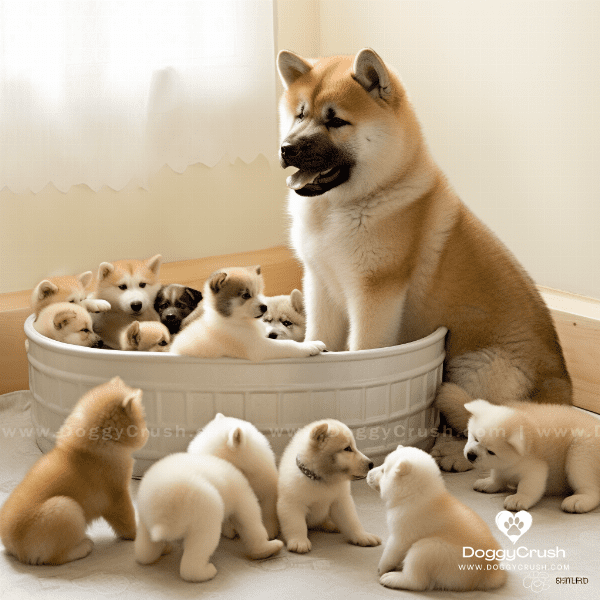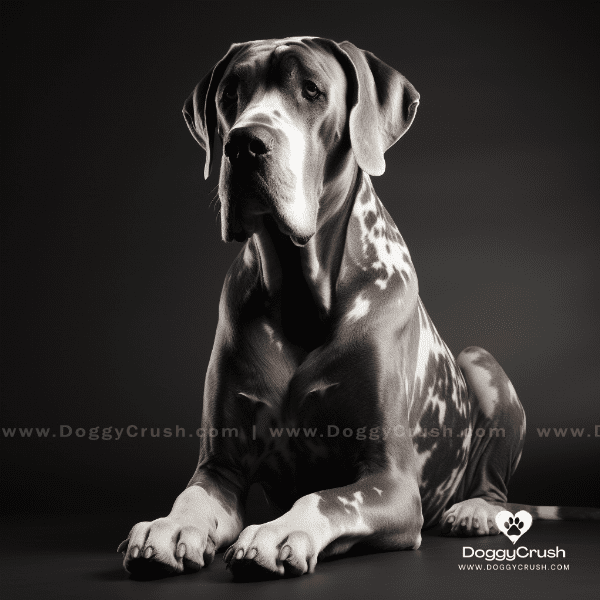Table of Contents
- The History and Origin of Akita Dogs
- Physical Characteristics and Appearance of Akita Dogs
- Akita Dogs: The Japanese National Treasure
- Understanding the Temperament and Personality of Akita Dogs
- Training and Socializing Akita Dogs: Tips and Tricks
- Common Health Issues Faced by Akita Dogs
- Akita Dogs as Working Dogs: Roles and Responsibilities
- Akita Dogs in Popular Culture: Movies and TV Shows
- Choosing and Caring for an Akita Dog: What You Need to Know
The History and Origin of Akita Dogs
Akita dogs have a rich and fascinating history that dates back to ancient Japan. This breed is one of the oldest Dog breeds in the world, and it is believed that their ancestors were originally used for hunting large game, such as deer and wild boar.
Ancestral Roots
The Akita dog’s ancestors are believed to be the Matagi-Inu, a group of hunting dogs that were originally found in the northern regions of Japan. These dogs were prized for their hunting abilities and were often used by the indigenous Ainu people to hunt game. Over time, the Matagi-Inu were crossed with other breeds, such as the Tosa and the Mastiff, to create a larger and more powerful hunting dog.
The Emergence of Akita Dogs
In the 17th century, Akita dogs were specifically bred for their fighting abilities and were used in dogfighting rings throughout Japan. However, in the 19th century, dogfighting was banned in Japan, and the Akita dog breed was on the brink of extinction.
Recovery and International Recognition
Fortunately, a group of Japanese breeders made efforts to preserve the Akita breed, and the Japanese government declared the Akita dog a national monument in 1931. The breed’s popularity continued to grow, and in the 1930s, a few Akita dogs were exported to the United States, where they gained international recognition.
Akita Dogs Today
Today, Akita dogs are still beloved in Japan and around the world for their loyalty, intelligence, and strength. In Japan, there are two types of Akita dogs: the Akita Inu and the American Akita. The American Akita is a larger and more heavily built dog than the Akita Inu, and it has a slightly different appearance.
In conclusion, the history and origin of Akita dogs are deeply rooted in the cultural and social history of Japan. From their ancestral roots as hunting dogs to their emergence as fighting dogs and their recovery as a national treasure, the Akita breed has a long and fascinating history that is still celebrated today.
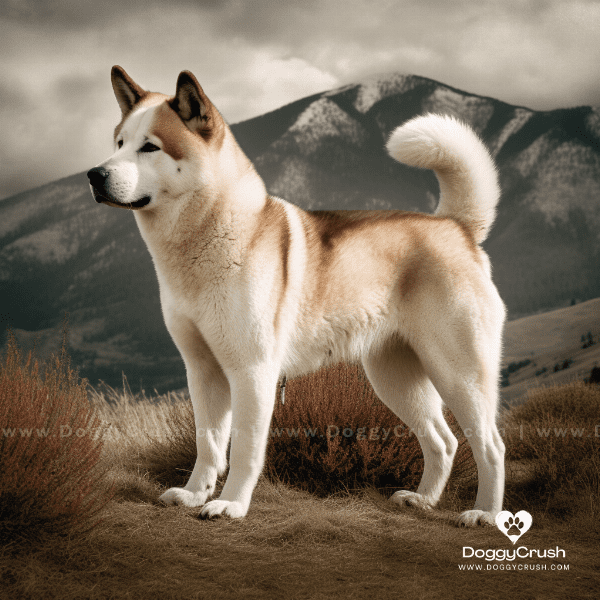
Physical Characteristics and Appearance of Akita Dogs
The Akita dog is a large and powerful breed with a distinctive appearance. These dogs have a muscular build, a thick double coat, and a broad head with small, triangular ears. Here are some of the physical characteristics and appearance traits that make the Akita dog unique.
Size and Weight
Akita dogs are a large breed, with males typically standing between 26-28 inches tall at the shoulder and weighing between 100-130 pounds. Females are slightly smaller, standing between 24-26 inches tall and weighing between 70-100 pounds.
Coat and Color
Akita dogs have a thick double coat that provides insulation from the cold. The outer coat is coarse and straight, while the undercoat is soft and dense. The Akita’s coat comes in a range of colors, including white, brindle, red, and sesame.
Head and Face
The Akita dog has a broad head with a powerful jaw and a short, wide muzzle. The eyes are small, dark, and almond-shaped, and they give the Akita a distinctive and somewhat intimidating expression.
Tail
One of the most unique characteristics of the Akita dog is its tail. The Akita’s tail is thick and curled over the back, and it is carried high and close to the body. This tail position is known as the “sickle tail,” and it is a defining characteristic of the breed.
Overall Appearance
When you see an Akita dog, you can’t help but be struck by its impressive size and muscular build. These dogs have a strong and imposing presence, and their thick double coat adds to their overall impressive appearance.
In conclusion, the Akita dog’s physical characteristics and appearance make it a unique and impressive breed. From their large size and thick double coat to their broad head and distinctive sickle tail, Akita dogs are instantly recognizable and beloved by many.
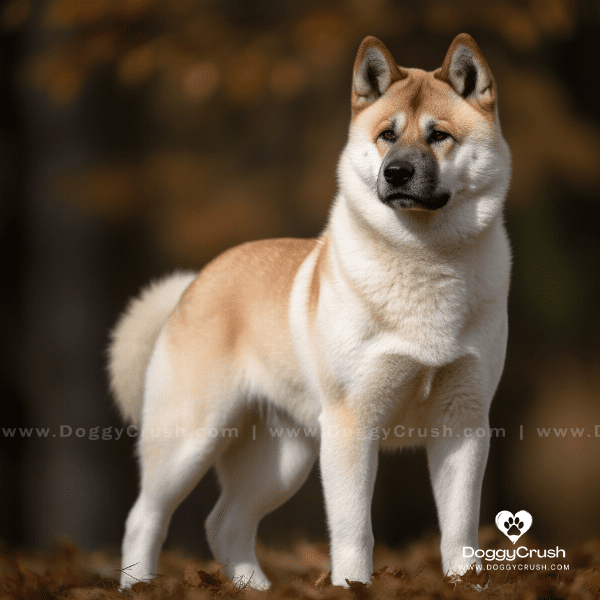
Akita Dogs: The Japanese National Treasure
Akita dogs are highly valued in Japan and are considered a national treasure. They have played an important role in Japanese culture and history, and their status as a national monument reflects their significance to the country.
The Importance of Akita Dogs in Japanese Culture
Akita dogs have a long history in Japan and have played important roles in Japanese culture. They have been used as hunting and working dogs, as well as guard dogs and companions. In Japanese folklore, Akita dogs are often portrayed as loyal and faithful companions, and they are highly regarded for their bravery and courage.
The Akita Inu and American Akita
In Japan, there are two distinct types of Akita dogs: the Akita Inu and the American Akita. The Akita Inu is the original Japanese breed, and it is considered the purest form of the breed. The American Akita, on the other hand, is a larger and more heavily built dog than the Akita Inu, and it has a slightly different appearance.
The Akita Dog as a National Monument
In 1931, the Japanese government declared the Akita dog a national monument in recognition of its importance to Japanese culture and history. The breed’s status as a national treasure helped to ensure its preservation and helped to raise awareness about the breed both in Japan and around the world.
The Preservation of Akita Dogs
Thanks to the efforts of Japanese breeders, the Akita dog has been preserved and has thrived in Japan and around the world. In addition to their status as a national treasure, the Akita breed is also protected by the Akita Inu Hozonkai, a Japanese organization dedicated to the preservation and promotion of the breed.
In conclusion, the Akita dog’s status as a national treasure in Japan is a testament to its importance in Japanese culture and history. From their roles as hunting and working dogs to their reputation as loyal and faithful companions, Akita dogs have played an important role in Japanese society for centuries. Today, the Akita breed is beloved around the world for its strength, loyalty, and unique personality.
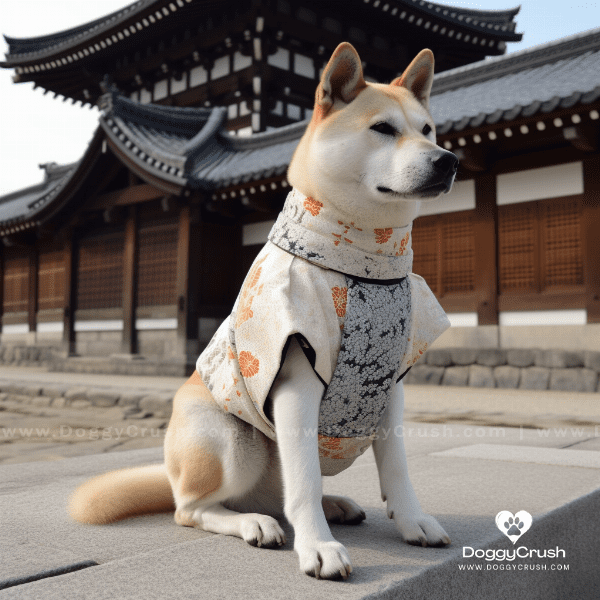
Understanding the Temperament and Personality of Akita Dogs
Akita dogs are known for their strong and independent personalities, and they are not the right breed for everyone. To truly appreciate and understand the Akita dog, it’s important to know what to expect from their temperament and personality.
Loyalty and Devotion
One of the most defining characteristics of Akita dogs is their loyalty and devotion to their owners. These dogs form strong bonds with their families and are known for their unwavering loyalty. However, this loyalty can also lead to protectiveness, which is something to be aware of when considering an Akita as a pet.
Independence and Stubbornness
Akita dogs are independent thinkers and can be quite stubborn at times. They are not always eager to please their owners and can be resistant to training. This independent streak is part of what makes Akita dogs so unique, but it can also make them a challenge to train and work with.
Aggression and Dominance
Another aspect of the Akita dog’s personality is their potential for aggression and dominance. This is a breed that requires firm and consistent training and socialization from an early age. Without proper training and socialization, Akita dogs can become aggressive or dominant, which can be dangerous for both the dog and its owners.
Playfulness and Affection
Despite their strong personalities, Akita dogs can also be quite playful and affectionate with their families. They enjoy spending time with their owners and can be quite cuddly and affectionate when they are in the mood.
Overall Temperament
The Akita dog’s temperament is complex and unique, and it requires careful consideration before bringing one into your home. This breed is not the right fit for every family, but for those who appreciate their loyalty, independence, and strong personality, Akita dogs can make wonderful pets.
In conclusion, the Akita dog’s temperament and personality are complex and require careful consideration before bringing one into your home. While these dogs are known for their loyalty and devotion, they can also be stubborn and independent at times. With proper training and socialization, however, Akita dogs can make wonderful companions for those who appreciate their unique personality.
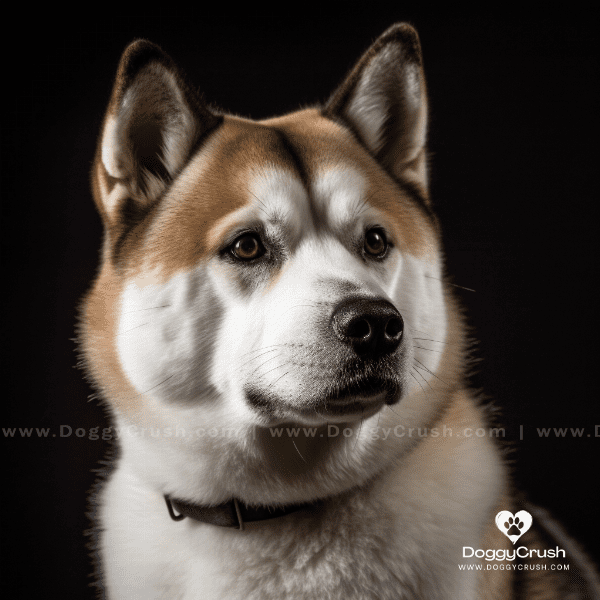
Training and Socializing Akita Dogs: Tips and Tricks
Training and socializing an Akita dog can be a challenging but rewarding experience. These dogs are intelligent and independent thinkers, which can make them a challenge to train. However, with patience and consistency, you can teach your Akita dog to be a well-behaved and obedient companion.
Start Early
One of the most important things to keep in mind when training an Akita dog is to start early. Begin training your Akita as soon as possible, ideally when they are still a puppy. This will help to establish good habits and behaviors early on, making training and socialization easier in the long run.
Use Positive Reinforcement
Akita dogs respond well to positive reinforcement, such as praise, treats, and playtime. Reward your dog for good behavior and ignore or redirect bad behavior. Avoid using physical punishment or negative reinforcement, as this can cause your dog to become aggressive or fearful.
Consistency is Key
Consistency is crucial when training an Akita dog. Establish clear rules and boundaries and enforce them consistently. Use the same commands and signals each time you train, and make sure everyone in the family is on the same page when it comes to training and socializing your Akita.
Socialization is Essential
Socialization is an essential part of training your Akita dog. This breed can be wary of strangers and other dogs, so it’s important to expose your Akita to a variety of people, animals, and situations from an early age. This will help your dog to become more confident and well-adjusted.
Seek Professional Help if Necessary
If you are having difficulty training or socializing your Akita dog, don’t be afraid to seek professional help. A qualified dog trainer or behaviorist can provide you with the guidance and support you need to train your Akita effectively and ensure they become a well-behaved and obedient companion.
In conclusion, training and socializing an Akita dog can be a challenging but rewarding experience. With patience, consistency, and positive reinforcement, you can teach your Akita to be a well-behaved and obedient companion. Remember to start early, use positive reinforcement, establish clear rules and boundaries, and seek professional help if necessary. With the right approach, you can enjoy a happy and harmonious relationship with your Akita dog.
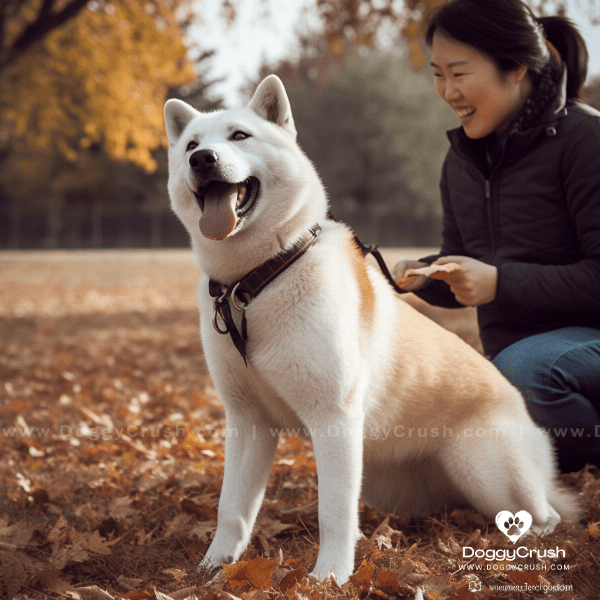
Common Health Issues Faced by Akita Dogs
As with all dog breeds, Akita dogs are prone to certain health issues. By understanding the common health problems that affect Akita dogs, you can take steps to prevent and manage these conditions and keep your dog healthy and happy.
Hip Dysplasia
Hip dysplasia is a common health problem that affects many large dog breeds, including Akita dogs. This condition occurs when the hip joint doesn’t develop properly, leading to arthritis and pain. Symptoms of hip dysplasia in Akita dogs include limping, difficulty getting up or climbing stairs, and a reluctance to exercise. Hip dysplasia can be managed with medication, weight management, and surgery in severe cases.
Hypothyroidism
Hypothyroidism is a condition that affects the thyroid gland, causing it to produce too little thyroid hormone. Symptoms of hypothyroidism in Akita dogs include weight gain, lethargy, and hair loss. This condition can be managed with medication, and regular blood tests can help to monitor thyroid function.
Bloat
Bloat is a serious and potentially life-threatening condition that affects many large dog breeds, including Akita dogs. This condition occurs when the stomach fills with gas and twists on itself, cutting off blood flow to the stomach and other vital organs. Symptoms of bloat in Akita dogs include restlessness, vomiting, and a swollen abdomen. Bloat requires immediate veterinary attention, and surgery may be necessary to correct the condition.
Progressive Retinal Atrophy
Progressive retinal atrophy is a degenerative eye disease that affects many dog breeds, including Akita dogs. This condition causes the gradual loss of vision and can eventually lead to blindness. Symptoms of progressive retinal atrophy in Akita dogs include night blindness, dilated pupils, and a reluctance to go outside in the dark. Unfortunately, there is no cure for this condition, but it can be managed with supportive care.
Vaccinations and Preventive Care
In addition to these common health issues, Akita dogs also require routine vaccinations and preventive care, including regular check-ups, dental care, and parasite prevention. By working closely with your veterinarian and staying up-to-date on your Akita’s health care needs, you can help to ensure that your dog remains healthy and happy for years to come.
In conclusion, Akita dogs are prone to certain health issues, but with proper care and attention, many of these conditions can be managed or prevented. By staying aware of the common health problems that affect Akita dogs and working closely with your veterinarian, you can help to ensure that your dog remains healthy and happy for many years.
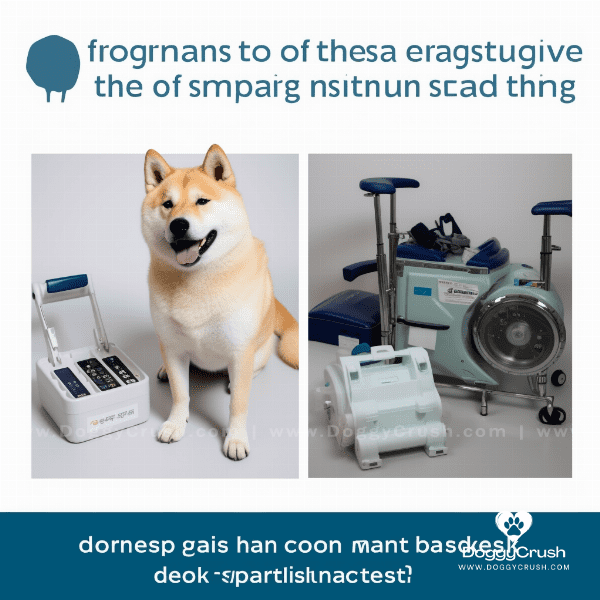
Akita Dogs as Working Dogs: Roles and Responsibilities
Akita dogs have a long history as working dogs and have been used for a variety of purposes throughout the years. From hunting and guarding to search and rescue, Akita dogs have played important roles in many different fields.
Hunting
One of the primary roles of Akita dogs has been as hunting dogs. Originally bred to hunt large game, such as deer and bear, Akita dogs are known for their strength and courage. Today, they are still used for hunting in some parts of the world, although their primary role has shifted to that of a companion animal.
Guarding
Akita dogs are also known for their skills as guard dogs. These dogs are naturally protective of their families and can be trained to guard property or livestock. They are highly intelligent and can be trained to respond to specific commands or to act on their own intuition.
Search and Rescue
Akita dogs have also been used in search and rescue operations. These dogs have an excellent sense of smell and can be trained to locate missing people or to detect specific scents, such as drugs or explosives. Akita dogs have been used in search and rescue operations around the world, including after natural disasters and in law enforcement.
Therapy Dogs
In addition to their roles as working dogs, Akita dogs also make excellent therapy dogs. These dogs are known for their calm and gentle demeanor and can be trained to provide comfort and companionship to people in hospitals, nursing homes, and other settings.
Overall Responsibilities
As working dogs, Akita dogs have a range of responsibilities, depending on their specific role. However, all Akita dogs share a responsibility to their families and their communities. These dogs are loyal and protective companions who can be counted on to provide comfort and support when it’s needed most.
In conclusion, Akita dogs have a long history as working dogs and have played important roles in many different fields. From hunting and guarding to search and rescue and therapy, Akita dogs have a range of responsibilities and can be counted on to provide support and companionship. As a beloved breed with a strong and independent personality, Akita dogs will continue to play important roles in our communities for many years to come.
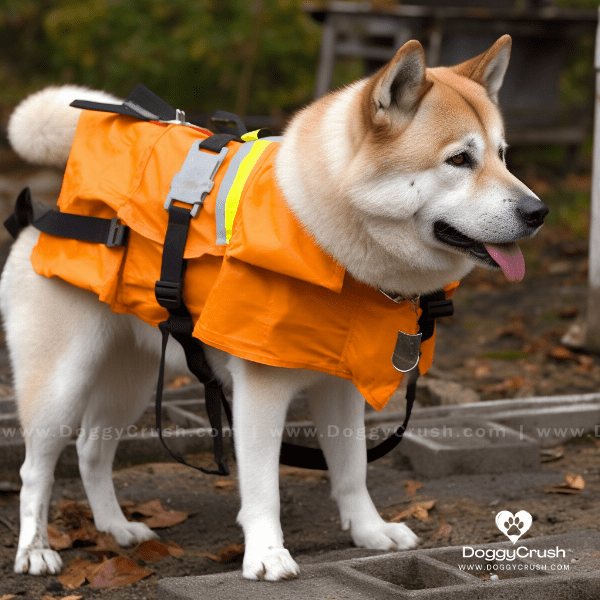
Akita Dogs in Popular Culture: Movies and TV Shows
Akita dogs have become a popular breed in movies and TV shows over the years, thanks to their distinctive appearance and unique personality. From heartwarming family films to action-packed adventures, Akita dogs have made their mark on popular culture.
Hachi: A Dog’s Tale
Perhaps the most famous Akita dog in popular culture is Hachiko, the subject of the heartwarming family film “Hachi: A Dog’s Tale”. The movie tells the true story of a loyal Akita dog named Hachiko, who waits for his owner at a train station every day, even after his owner passes away. The film has become a classic and has helped to popularize the Akita breed around the world.
Kavik the Wolf Dog
Another popular movie featuring an Akita dog is “Kavik the Wolf Dog”. The movie tells the story of a sled dog named Kavik, who is sold to a new owner and must find his way back home. Along the way, Kavik faces many challenges, including dangerous wildlife and harsh weather conditions. The movie highlights the strength and resilience of the Akita breed.
TV Shows
Akita dogs have also appeared in several TV shows over the years. In the hit TV show “Lost”, one of the main characters, John Locke, has an Akita dog named Vincent. Vincent plays an important role in the show and becomes a beloved character in his own right. Other TV shows that have featured Akita dogs include “Homeland” and “The Blacklist”.
The Impact of Akita Dogs in Popular Culture
The popularity of Akita dogs in movies and TV shows has helped to raise awareness about the breed and its unique personality. These dogs are known for their loyalty, strength, and independence, which has made them popular choices for movies and TV shows that feature strong and heroic characters. As a result, the Akita breed has become more well-known and appreciated around the world.
In conclusion, Akita dogs have made a significant impact in popular culture, thanks to their distinctive appearance and unique personality. From heartwarming family films to action-packed adventures and TV shows, Akita dogs have become beloved characters that have helped to raise awareness about the breed. As a result, the Akita breed continues to grow in popularity and appreciation around the world.
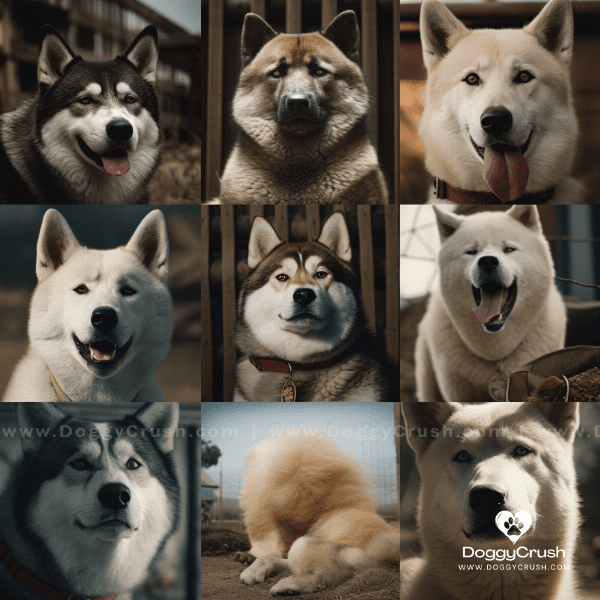
Choosing and Caring for an Akita Dog: What You Need to Know
Choosing an Akita dog as a pet requires careful consideration and preparation. These dogs have a unique personality and require specific care and attention to ensure their health and happiness.
Choosing the Right Akita Dog
When choosing an Akita dog, it’s important to find a reputable breeder who can provide you with a healthy and well-socialized puppy. Look for a breeder who performs health screenings on their dogs and who can provide you with references from previous buyers. It’s also important to spend time with the puppy before making your decision, to ensure that their personality and energy level are a good fit for your lifestyle.
Caring for Your Akita Dog
Caring for an Akita dog requires attention to their specific needs and traits. These dogs require regular exercise, both physical and mental, to keep them healthy and happy. They also require a high-quality diet, regular grooming, and routine veterinary care to prevent and manage health issues.
Training and Socialization
Training and socialization are also crucial for the health and happiness of your Akita dog. These dogs require firm and consistent training from an early age to prevent bad behavior and to establish clear rules and boundaries. Socialization is also important, as Akita dogs can be wary of strangers and other dogs. Expose your Akita to a variety of people, animals, and situations from an early age to ensure that they become well-adjusted and confident dogs.
Commitment and Responsibility
Owning an Akita dog is a long-term commitment and responsibility. These dogs can live up to 10-15 years or more, and they require consistent care and attention throughout their lives. Before bringing an Akita into your home, be sure that you are ready and willing to provide the care and attention that they need to thrive.
In conclusion, choosing and caring for an Akita dog requires careful consideration and preparation. These dogs have a unique personality and require specific care and attention to ensure their health and happiness. When choosing an Akita, look for a reputable breeder and spend time with the puppy before making your decision. Once you bring your Akita home, provide them with regular exercise, high-quality nutrition, and routine veterinary care. Train and socialize your Akita from an early age and be prepared to commit to their care and attention for many years to come.
